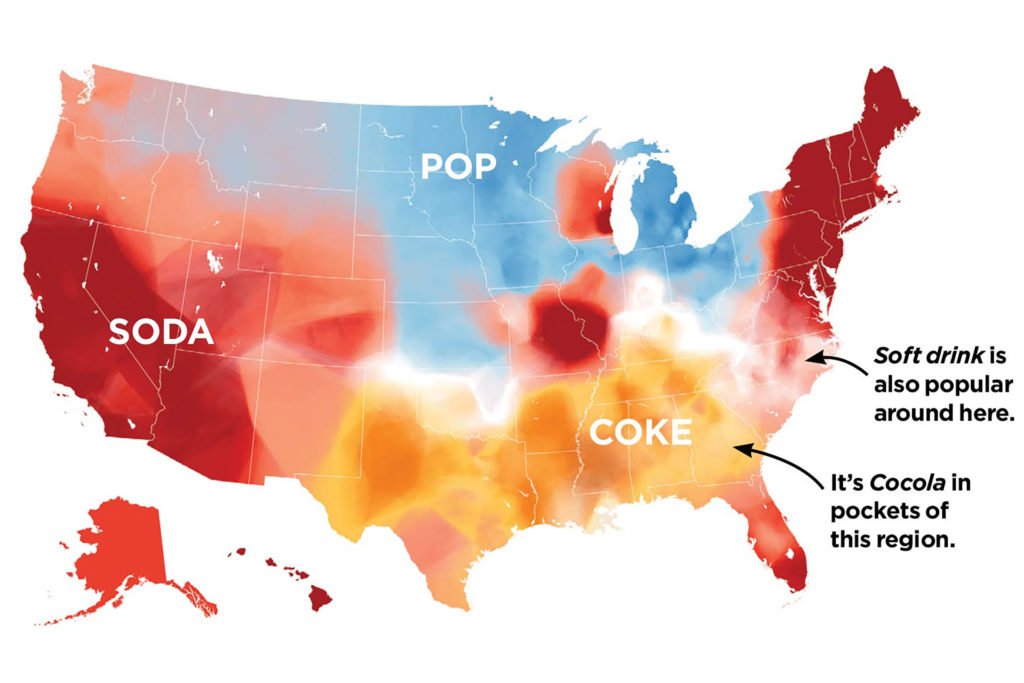
Etymology, the study of the origin of words and how the meanings of words change over time, is just as relevant in social studies as it is in English classes. When words appear in a language, how words evolve and change, and when words are discarded tell a wider social, political, economic, or cultural story. For students learning social studies, the benefits of learning these words can be immense, and serve to build essential skills.
The globalization of English
Historically, as people migrated across the world, the English language evolved and changed. When people of different cultures met during mass migrations, they exchanged things, ideas, and the language used to describe these things and ideas. Archaic English words mixed with Latin, Greek, Germanic, and French roots to form a new language, emerging centuries ago. In fact, adopting words from other cultures continues to this day.
For example, bodega is a Spanish word for shop, but it was fist introduced into the English vernacular in New York City during the 1950s to describe a Puerto-Rican owned business. Today, the meaning in many American cities has broadened to refer to a small convenience store. Even people outside of large cities understand the meaning of bodega from popular media, as the word is now commonly used in television shows and movies.
Students can research other English words that hold significance in history, current events, or popular culture, and which originated from different cultures and languages. Have students research names of cities, landmarks, and states for additional inspiration behind the significance words hold for titling geographical locations.
English varies across the world
While English remains a global language, the meaning or usage of an English word in one nation or culture might be different from that in another. Global diversification of English began as the British established colonies around the world in the eighteenth century. While today only about 5.5% of the world’s population are native English speakers, the language is widely learned and a common second language for millions.

However, how English is spoken commonly differs between nations, regions, or even local communities. In the United States, the “pop” versus “soda” versus “coke” debate is a perfect example of how English varies regionally. Worldwide, look at native English speaking countries, like Ireland, Australia, the United Kingdom, and the United States, for differences in various English words or phrases to describe the same product. “Drugstores ” and “pharmacies” in the United States are “chemist shops” in the United Kingdom.
Translating words from primary sources
Archaic words, such as “cordwainer,” “goodwife,” “husbandman,” “blackguard,” and “cutpurse,” make appearances in primary source texts from the Middle Ages to the late nineteenth and early twentieth century. However, if students don’t know the meaning of these words—a cordwainer was shoemaker; a goody, or goodwife, was a polite term to address a woman of lower social status; a husbandman was a farmer; blackguard a servant or criminal; and cutpurse a pickpocket—primary source texts become meaningless and analysis can be close to impossible.
Only through research and exploration can students build the context of the words they need to interpret the source. In turn, contextualizing these words will help students build skills to analyze primary sources, and make the social studies lesson impactful.

New words for changing experiences
The Oxford English Dictionary is a key source for the history of words in the English language, and necessary student resource when studying the evolution of language. It features over 600,000 words from across the English-speaking world from the past and present. The earliest use of each entry in print is noted, and the history of the meaning of a word is traced through quotations. Every three months, editors revise existing entries and add new words and phrases.
This massive dictionary originated in 1857 when the Philological Society of London planned a new, comprehensive dictionary documenting English words since the Middle Ages. The first volumes were published 27 years later, but the work continued for forty more years. The last of ten volumes was published in 1928.
Because languages constantly evolve, beginning in 1933, the editors of the Oxford English Dictionary began regularly publishing supplements with additional entries. As a recent example, mere months ago, “coronavirus” was an unknown word outside of the context of medicine and science. Today, the word takes on another meaning to describe our new reality, and now has its own entry in the Oxford English Dictionary.
In 1984, work began to update the printed editions and provide a digital version, first on CD-ROM, and later on the internet. Today, individuals can subscribe to the online version for an annual fee or access the online dictionary for free from library databases.
NOTE: For remote learning activities that connect the history of words and social studies, we recommend utilizing this blog content in conjunction with online curriculum resources and lessons from Active Classroom, Nystrom World, or the Library of Congress. This blog can be sent to students to provide context for compare-and-contrast assignments or long-term projects analyzing the history and evolution of language.
Seeking more curriculum and activity resources?
Sign up for a free trial of Active Classroom
References
“bodega, n.”. OED Online. March 2020. Oxford University Press.
https://public.oed.com/history/
https://public.oed.com/blog/twentieth-century-english-an-overview/
Cynthia W. Resor is a social studies education professor and former middle and high school social studies teacher. Her dream job? Time-travel tour guide. But until she discovers the secret of time travel, she writes about the past in her blog, Primary Source Bazaar. Her three books on teaching social history themes feature essential questions and primary sources: Discovering Quacks, Utopias, and Cemeteries: Modern Lessons from Historical Themes; Investigating Family, Food, and Housing Themes in Social Studies and Exploring Vacation and Etiquette Themes in Social Studies.